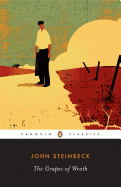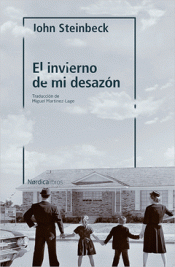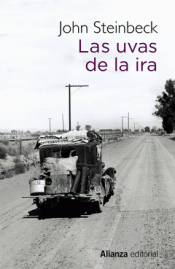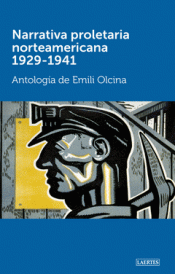First published in 1939, Steinbeck's Pulitzer Prize-winning epic of the Great Depression chronicles the Dust Bowl migration of the 1930s and tells the story of one Oklahoma farm family, the Joads--driven from their homestead and forced to travel west to the promised land of California. Out of their trials and their repeated collisions against the hard realities of an America divided into Haves and Have-Nots evolves a drama that is intensely human yet majestic in its scale and moral vision, elemental yet plainspoken, tragic but ultimately stirring in its human dignity. A portrait of the conflict between the powerful and the powerless, of one man's fierce reaction to injustice, and of one woman's stoical strength, the novel captures the horrors of the Great Depression and probes into the very nature of equality and justice in America. At once a naturalistic epic, captivity narrative, road novel, and transcendental gospel, Steinbeck's powerful landmark novel is perhaps the most American of American Classics.
This Penguin Classics edition contains an introduction and notes by Steinbeck scholar Robert Demott.
For more than seventy years, Penguin has been the leading publisher of classic literature in the English-speaking world. With more than 1,800 titles, Penguin Classics represents a global bookshelf of the best works throughout history and across genres and disciplines. Readers trust the series to provide authoritative texts enhanced by introductions and notes by distinguished scholars and contemporary authors, as well as up-to-date translations by award-winning translators.
THE GRAPES OF WRATH
AUTOR/A
STEINBECK, JOHN
Narrador y dramaturgo estadounidense, famoso por sus novelas que lo ubican en la primera línea del naturalismo o del realismo social americano, obtuvo el premio Nobel en 1962.<BR><BR>Su estilo, próximo al periodismo, cuenta sin embargo con una gran carga de emotividad y simbolismo, como ocurre en sus obras mayores: De ratones y hombres (1937), Las uvas de la ira (1939) y Al este del Edén (1952). La prosa de Steinbeck tiene un fuerte componente alegórico y espiritual, prestando especial atención a los desfavorecidos de todo tipo, por lo que parte de la crítica le ha adjudicado la etiqueta de "novelista proletario", por su interés en las experiencias de las poblaciones de inmigrantes y los problemas de la clase obrera, desde una postura socialista o redentora. A modo de ejemplo, Las uvas de la ira es considerada la novela más revulsiva de la década de 1930, pues provocó la reacción fervorosa y humanista de un amplio público opuesto a las clases conservadoras.<BR>












